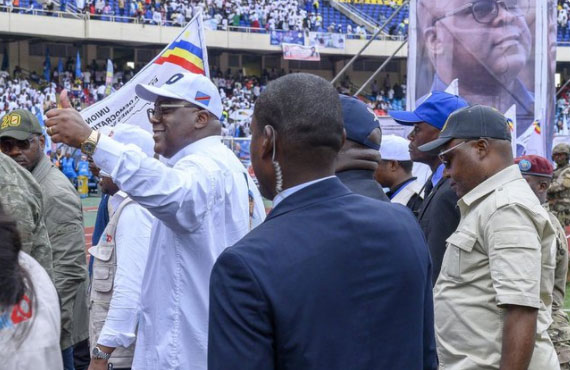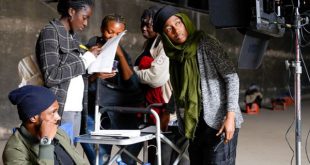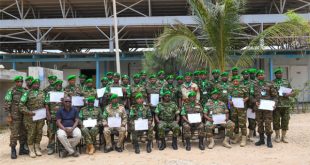
Arusha, Tanzania | THE INDEPENDENT | The East African Community (EAC) will not participate as an observer in the electoral process in the Democratic Republic of Congo (DRC) due on Wednesday, December 20. The secretariat said in a brief statement that the DRC authorities had declined the EAC application to have an observer mission in the country that was admitted into the regional bloc last year.
“This is to notify the EAC Partner States, Development Partners, and all other Stakeholders that EAC will not physically be present in DRC to observe her 2023 General Elections as provided for in the Treaty Establishing the East African Community and as it has been the practice since the inception of the EAC,” said the statement. The secretariat wished the country peaceful elections and said it remained committed to serving its mandate over the DRC as a member.
“This development is because although EAC was ready, the request to undertake the exercise has not been granted by the relevant authorities. The EAC wishes the Government and the people of DRC peaceful elections and remains committed to discharge our mandate to all Partner States,” read the statement.
The motive behind DRC’s decision is not clear and it will likely increase the uncertainty over Kinshasa’s commitment to the bloc that has been rising over the approaches to ending the armed conflicts in the east of the country. Last week, the EAC partner states started withdrawing peacekeeping troops that had been deployed to the country under the regional initiative to end the conflict, after the Kinshasa authorities declined to renew their mandate accusing the forces of failing to fight the M23, the strongest armed group against the government.
This came despite the militaries insisting that their mandate stopped at preventing further attacks and expansion of controlled areas by the rebels, but not launching an offensive against anyone.
Observers say the issue of Rwanda, a member of the EAC, has been dominant in the election campaigns with some politicians openly accusing her of supporting rebels there.
In November, the European Union also cancelled its election observation mission for the country saying it would not be able to deploy officials across the country for security reasons. “Due to technical constraints beyond the control of the EU, we are forced to cancel the EU election observation mission to the Democratic Republic of Congo (DRC),” the EU said in a statement.
The International Conference on the Great Lakes Region (ICGRL) Parliamentary Forum, with its headquarters in Kinshasa, issued its first observer statement. The forum’s secretariat is headed by former Ugandan legislator Onyango Kakoba. In its statement, it says that so far, the campaigns were largely peaceful and appealed to all stakeholders to ensure a peaceful, free, and fair election.
President Félix Antoine Tshisekedi Tshilombo is running for his second, and constitutionally, last term. He faces Martin Fayulu, who is widely believed to have won the 2018 polls though the electoral commission announced him second best.
Moïse Katumbi, a wealthy businessman and former governor of Katanga province, is also in the race. He is the proprietor of the popular football team, TP Mazembe Football. Denis Mukwege, a Nobel Peace Price winner in 2018 for his work with rape victims is the fourth candidate.
*****
URN
 The Independent Uganda: You get the Truth we Pay the Price
The Independent Uganda: You get the Truth we Pay the Price


